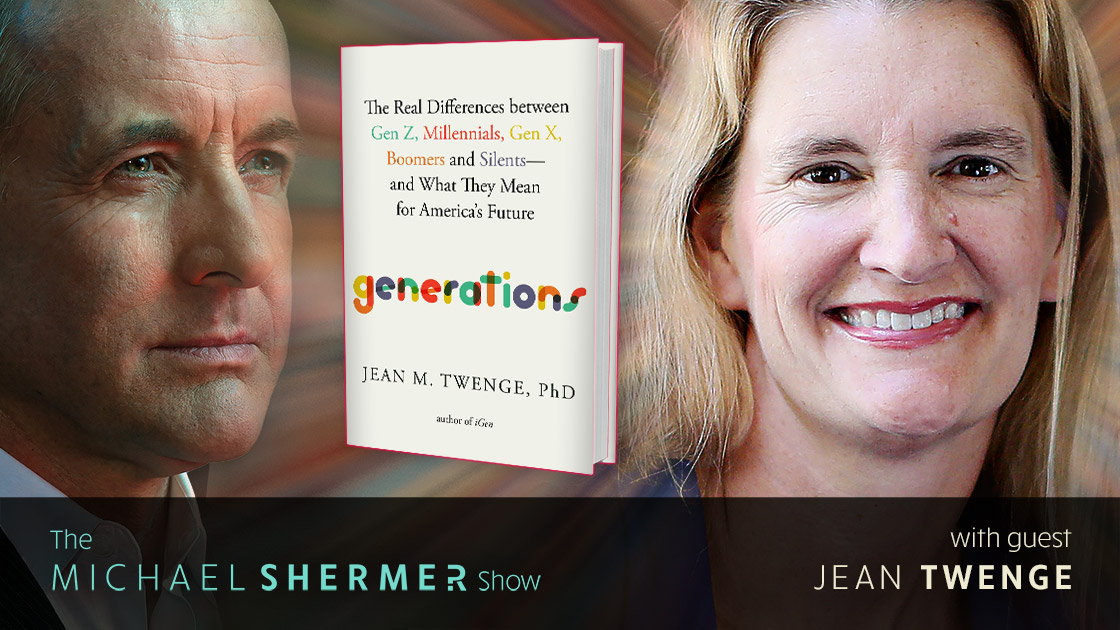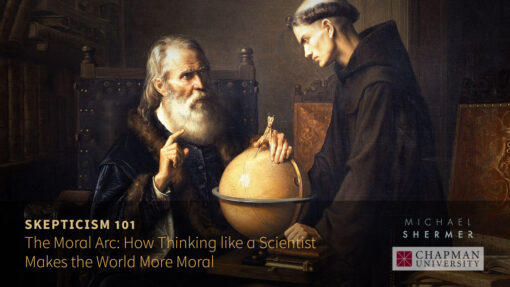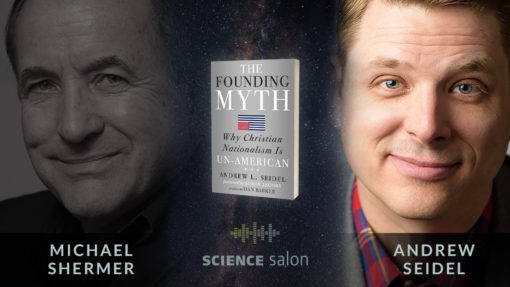gay rights

Shermer and Eig discuss: how to write biography • the history of the King family going back to slavery, Jim Crow, etc. • the influence of King Sr. on Martin’s intellectual and emotional development and the Ebenezer Baptist Church • King’s early experience with racism in the south • King’s religious beliefs and the influence of his faith on his civil rights activism • the influence of Gandhi and Reinhold Niebuhr on King’s strategic activism and deep belief in nonviolence…

Shermer and Twenge discuss: untangling interacting causal variables (age, gender, race, religion, politics, SES, big events, slow trends, time-period effects, and generational effects) • fuzzy sets/conceptual categories • how historical events effect generations: the Great Depression, WWII, the Cold War and its end, AIDS, 9/11, The Great Recession, Covid-19, #metoo, #BLM, trans, AI • how long-term trends effect generations • technology as a driver of generational differences • civil rights, women’s rights, gay rights, trans rights • abortion and reproductive…

In this special episode of the Science Salon Podcast, Michael Shermer catches up with Douglas Murray one year after the publication of his bestselling book The Madness of Crowds, now out in paperback, with an Afterword update on all that has happened the past year, one of the most momentous in living memory.
In this special episode of the Science Salon Podcast, Michael Shermer catches up with Douglas Murray one year after the publication of his bestselling book The Madness of Crowds, now out in paperback, with an Afterword update on all that has happened the past year, one of the most momentous in living memory.

In this, the final lecture of his Chapman University Skepticism 101 course, Dr. Michael Shermer pulls back to take a bigger picture look at what science and reason have done for humanity in the realm of moral progress. Watch The Moral Arc: How Thinking Like a Scientist Makes the World More Moral.
In this, the final lecture of his Chapman University Skepticism 101 course, Dr. Michael Shermer pulls back to take a bigger picture look at what science and reason have done for humanity in the realm of moral progress. Watch The Moral Arc: How Thinking Like a Scientist Makes the World More Moral.

Was America founded on Judeo-Christian principles? Are the Ten Commandments the basis for American law? What, exactly, was the role of religion in America’s founding? Shermer speaks with constitutional attorney and scholar at the Freedom from Religion Foundation (FFRF) Andrew L. Seidel who argues that America was not built on the Bible and that Christian nationalism is, in fact, un-American.
In this week’s eSkeptic, Russell Friedman—skeptic, colleague, and friend of Michael Shermer—writes in response to Shermer’s article on the gay rights revolution. Friedman recounts his experience opening the first gay bar in Los Angeles with windows that faced the street, a big deal at the time as gays were still in the closet and all such public venues were hidden to the public and you had to know where to go to get in.
Historically, the arc of the moral universe has been bending toward justice because we have stopped treating people based on who they are by nature, such as gender, race, and most recently by sexual preference. The recent legal imbroglio over the right of businesses in Indiana and other states to refuse service to people based on their sexual preference (gay versus straight) illuminates how quickly this rights revolution is unfolding.
In this provocative and compelling talk—that includes brief histories of freedom rights, women’s rights, gay rights, and animal rights, along with considerations of the nature of evil and moral regress—Shermer explains how scientific ways of thinking have moved us ever closer to a more just world.
It is only a slight exaggeration to say that the British mathematician Alan Turing (1912–1954) saved the Allies from the Nazis, invented the computer and artificial intelligence, and anticipated gay liberation by decades — all before his suicide at age 41. In November a major motion picture starring Benedict Cumberbatch as Turing will be released, based on the classic biography by Dr. Andrew Hodges, who teaches mathematics at Wadham College, University of Oxford (he is also an active contributor to…
In this week’s eSkeptic, in the midst of the gay marriage controversy sweeping across the nation (as individual states are changing their constitutional minds about what constitutes marriage), we present an interesting article by Barrett Brown that demolishes the silly notion proffered by some conservatives that gay marriage decreases straight marriage rates.













